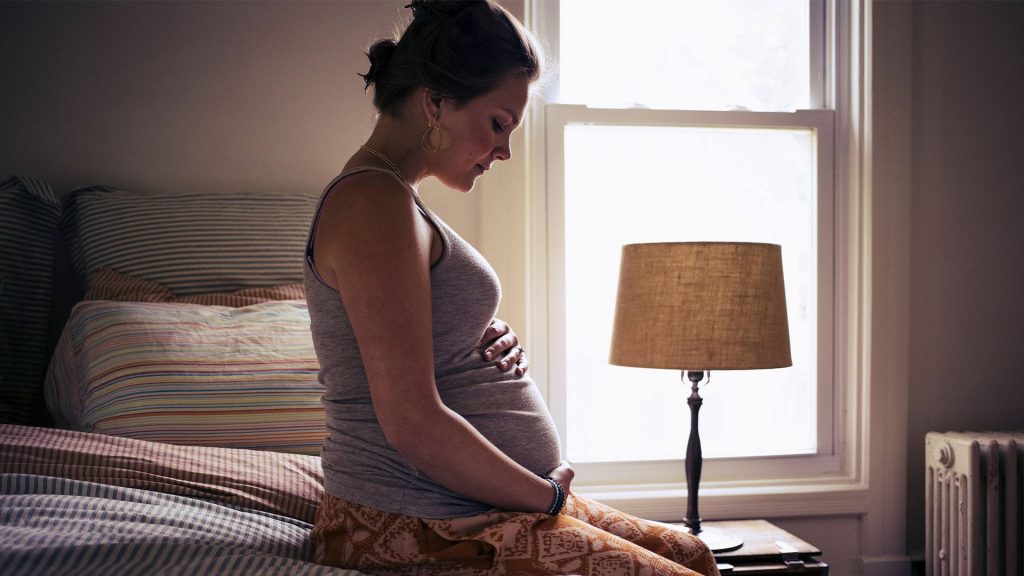-
Discovery Science
Preeclampsia’s lingering shadow

A recent study published in the journal Hypertension points to the potential long-term consequences of preeclampsia — specifically, accelerated aging in women who have had this condition.

Preeclampsia is a pregnancy complication marked by high blood pressure, which can affect health outcomes for mothers and babies. A growing body of research, led by Vesna Garovic, M.D., Ph.D., a Mayo Clinic nephrologist, has shown a link between preeclampsia and accelerated aging, which may affect a woman's health well after pregnancy.
This study is the first to show that a history of preeclampsia is associated with increased concentrations of certain biomarkers in the body that are recognized as signs of cellular senescence.
Markers of aging
Cellular senescence is a process in which cells stop dividing but do not die. Instead, the cells remain in the body, releasing inflammatory molecules. Senescence is considered a classic sign of aging.

"We suspect senescence may be the pathway leading women to develop preeclampsia, and the process doesn't stop at the delivery of a child," says Sonja Suvakov, M.D., Ph.D., a Mayo Clinic women's health and nephrology researcher and the first author of the paper. "It continues on, casting a shadow down through the years and making women more likely to develop other diseases associated with aging."
Previous studies have shown that women with a history of preeclampsia are at greater long-term heart and kidney disease risk and are more likely to develop multiple chronic conditions. This accumulation of chronic conditions is associated with cellular senescence and aging.
Working with the data from the Rochester Epidemiology Project, the researchers compared 40 women with a history of preeclampsia to a control group of 40 women who had normal blood pressure during their pregnancies and followed them for six years. They found evidence of increased cellular senescence in women with a history of preeclampsia based on an analysis of three biomarkers:
- Urinary a-Klotho: This protein is associated with longevity and protects against oxidative stress, a source of DNA damage, and aging-related diseases. Lower levels of this protein appeared in the preeclampsia group.
- Leptin/adiponectin ratio: Higher ratios of these fat hormones, which appeared in the preeclampsia group, are linked to metabolic disorders and accelerated aging. These hormones help regulate appetite and maintain energy balance in the body.
- Extracellular vesicles positive for tissue factor: Higher levels of these particles, which can lead to blood clots and cardiovascular disease risk, appeared in the preeclampsia group. Extracellular vesicles are tiny particles involved in blood clotting; tissue factor is a biomarker associated with inflammation.
In the study, women with a history of preeclampsia were four times more likely to experience a major cardiovascular event, such as a stroke. In addition, they were more likely to have multiple chronic conditions, such as high blood pressure, high cholesterol, chronic kidney disease and depression.
Targets for future treatments
There are no therapies available to treat cellular senescence in women with preeclampsia. However, research is underway to develop treatments designed to specifically target senescent cells associated with diabetes, Alzheimer's disease and a variety of other conditions. The researchers hope the discovery of these new biomarkers will not only improve understanding of how preeclampsia works but will also spur the development of targeted therapies.
"Our future research will explore whether targeting the fundamental aging process will improve immediate and long-term patient outcomes," says Dr. Garovic. "We aim to fill the void for specific therapies."
Preeclampsia occurs in 1 in 25 pregnancies. "Banishing the specter of preeclampsia would improve the lives of countless women and their families and transform society in ways we can't even imagine," says Dr. Garovic.







